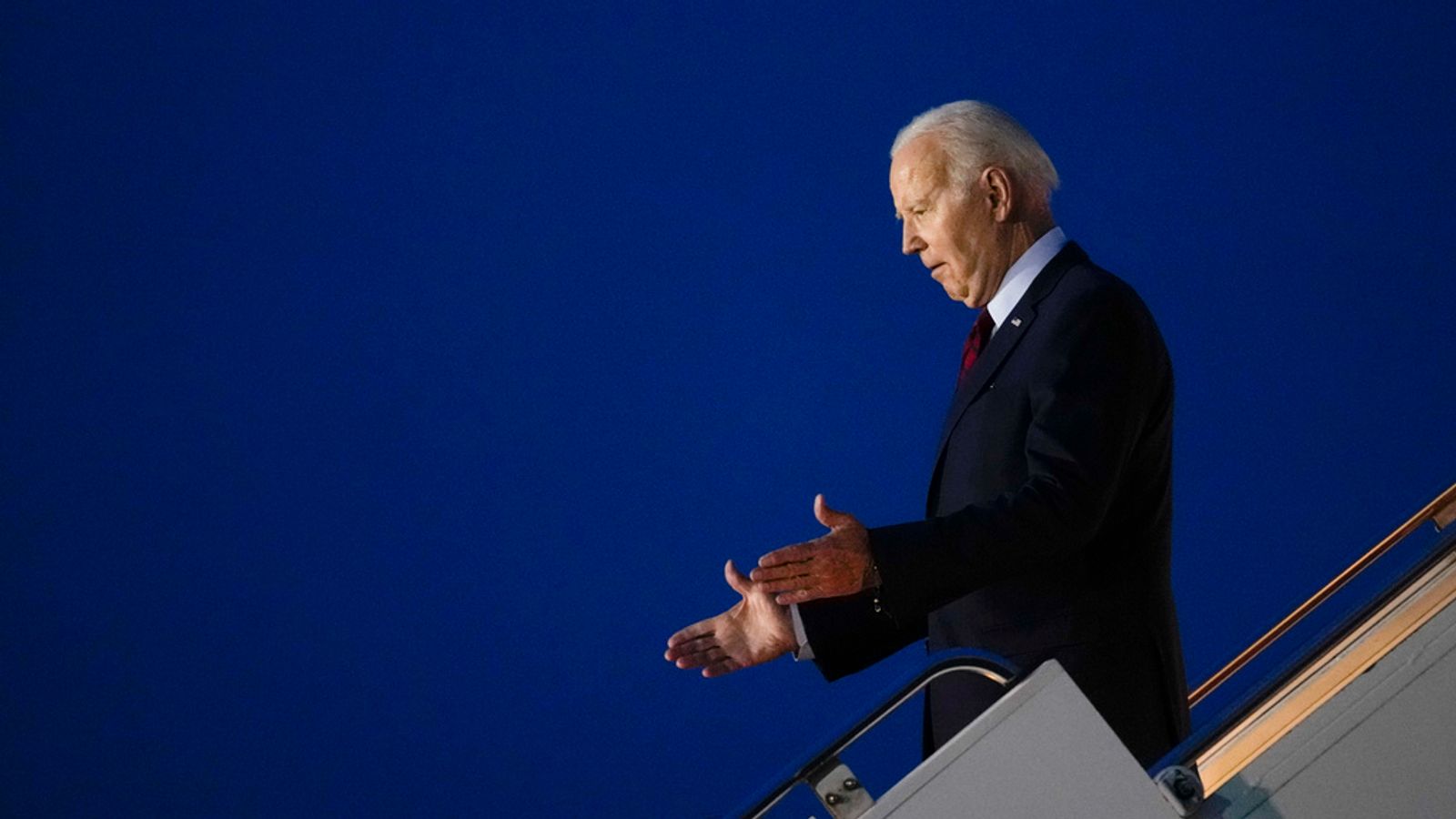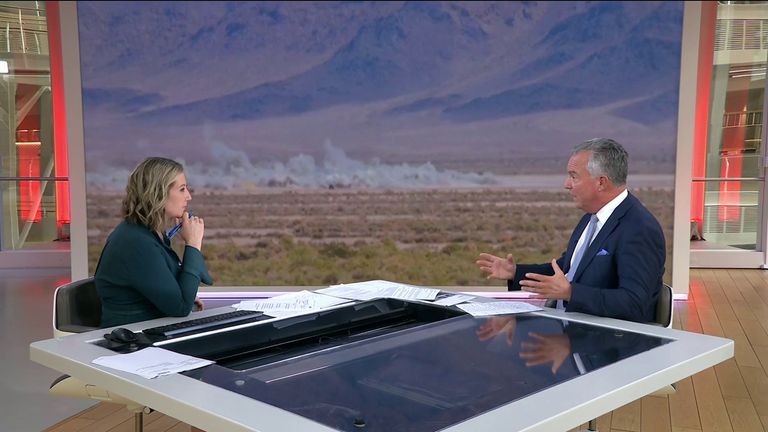Joe Biden will meet Rishi Sunak in Downing Street before having tea with King Charles during his visit to the UK.
The US president touched down at Stansted Airport on Sunday evening, before he was taken by helicopter to the residence of the US ambassador in central London.
Mr Biden’s stopover in Britain comes ahead of a crunch two-day NATO summit in Vilnius, Lithuania, on Tuesday, in which leaders are set to discuss the war in Ukraine and the future of the military alliance as several nations clamour to join.
On Monday morning, Mr Biden will meet Prime Minister Rishi Sunak, where it is expected they will talk about, among other things, Ukraine’s counter-offensive in its conflict with Russia, cluster munitions, and Kyiv’s NATO membership.
The pair have differing views over the topics, with Mr Biden hesitant on Ukraine’s bid to join NATO, while Mr Sunak is said to support fast-track membership.
Mr Sunak and Mr Biden could also talk about challenges post-Brexit to the Northern Ireland peace process, after John Kerry, the US climate envoy, told the BBC on Sunday it will make up a “critical component” of their discussion.
It will be the fifth meeting between the men in as many months.
Mr Biden will then travel to Windsor Castle, where he will meet King Charles and be given a display of pageantry, despite the trip not being a state visit.
The Welsh Guards will perform the US national anthem, and he will receive the royal salute, before heading in for tea with the monarch.
They will than attend a climate finance mobilisation forum, where major financial and philanthropic leaders will discuss the support that can be offered to poorer countries.
Read more:
As NATO prepares to meet, the US will seek to calm its critics over sending cluster munitions to Ukraine
Why Sunak and Biden are struggling to keep spark of special relationship alive
NATO head ‘absolutely’ confident allies will agree on formal wording about Ukraine’s alliance membership
After that, it is expected Mr Biden, as well as Mr Sunak, will travel to Vilnius for the NATO talks.
Mr Biden is under pressure from elsewhere to explain his decision to send cluster munitions to Ukraine, given two-thirds of NATO members have signed the Convention on Cluster Munitions.
It prohibits the use or stockpiling of the weapon, which is often a bomb that deploys smaller weapons that explode across a wide area, due to their threat to civilian populations.
Mr Biden has justified his move by saying he was seeking to top up Ukraine’s rapidly depleting weapon stock, and has received assurances about their use from Kyiv.

